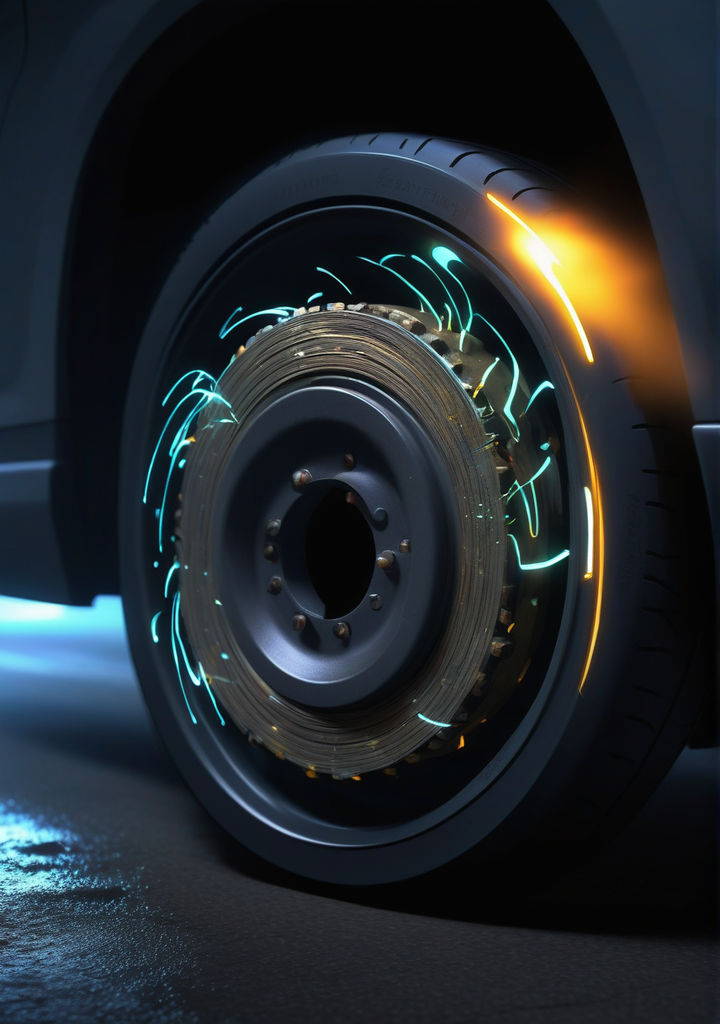
Hearing squeaking noises from your brakes can be concerning. It often indicates that something is amiss with your braking system. This article explores the common causes of brake squeaks, how to diagnose the problem, and what steps you can take to fix it.
1. Common Causes of Brake Squeak
1.1. Dust and Debris
- Explanation: Dust, dirt, and debris can accumulate between the brake pads and rotors, causing a squeaking noise when the brakes are applied.
- Symptoms: Squeaking or squealing noise, especially when the brakes are first applied.
- Solution: Clean the brake components with compressed air or brake cleaner. If the problem persists, consider having the brakes inspected and cleaned professionally. Cleaning services typically cost between $50 and $100.
1.2. Worn Brake Pads
- Explanation: Brake pads have a built-in indicator that emits a squeaking noise when the pads are worn down to a certain level.
- Symptoms: High-pitched squeal or squeak that occurs during braking.
- Solution: Replace the brake pads. The cost of brake pad replacement ranges from $100 to $300 per axle, including parts and labor.
1.3. Glazed Brake Pads or Rotors
- Explanation: Overheating can cause brake pads and rotors to become glazed, creating a hard, shiny surface that leads to squeaking.
- Symptoms: Squeaking noise that persists even after the brakes have been used.
- Solution: Resurface the rotors or replace them if necessary. Resurfacing costs around $100 to $150 per rotor, while replacement can range from $200 to $400 per axle.
1.4. Lack of Lubrication
- Explanation: The brake caliper slides and contact points need proper lubrication. Lack of lubrication can lead to squeaking noises as the caliper moves.
- Symptoms: Squeaking or squealing during braking, particularly when coming to a stop.
- Solution: Apply brake lubricant to the caliper contact points. Lubrication services can cost between $50 and $75.
1.5. Rust or Corrosion
- Explanation: Rust on the rotors or other brake components can cause squeaking, especially if the car has been parked for an extended period.
- Symptoms: Squeaking or grinding noise, particularly after the vehicle has been idle.
- Solution: Have the rotors cleaned or replaced if rust is severe. Rotor replacement can cost between $200 and $400 per axle.
1.6. Faulty Brake Hardware
- Explanation: Components like brake shims, anti-rattle clips, or caliper hardware can wear out or become damaged, causing brake noise.
- Symptoms: Squeaking or rattling noise that occurs during braking.
- Solution: Replace worn or damaged brake hardware. Replacement costs can range from $50 to $150.
2. How to Diagnose and Fix Brake Squeak
Step 1: Visual Inspection
- Procedure: Inspect the brake pads, rotors, and calipers for signs of wear, rust, or debris.
- Cost: DIY inspection is free; professional inspection may cost between $50 and $100.
Step 2: Check Brake Pads
- Procedure: Measure the thickness of the brake pads. Pads should typically be at least 1/8 inch thick.
- Cost: Replacement of brake pads: $100 to $300 per axle.
Step 3: Clean and Lubricate Brake Components
- Procedure: Use brake cleaner to remove dust and debris from the rotors and pads. Apply brake lubricant to caliper contact points.
- Cost: Cleaning and lubrication: $50 to $100.
Step 4: Resurface or Replace Rotors
- Procedure: Have the rotors resurfaced to remove glazing and rust, or replace them if necessary.
- Cost: Resurfacing: $100 to $150 per rotor; Replacement: $200 to $400 per axle.
Step 5: Replace Faulty Hardware
- Procedure: Inspect and replace any damaged brake hardware components, such as shims or anti-rattle clips.
- Cost: Replacement of brake hardware: $50 to $150.
FAQ
Q1: Can I drive my car if the brakes are squeaking?
- A: Yes, but it's important to address the issue promptly. Squeaking brakes can indicate worn pads or other problems that may affect braking performance.
Q2: How often should I replace my brake pads?
- A: Brake pads typically need to be replaced every 30,000 to 70,000 miles, depending on driving conditions and pad material. Always check your vehicle's manufacturer recommendations.
Q3: How can I prevent my brakes from squeaking?
- A: Regular maintenance, including cleaning, proper lubrication, and timely replacement of worn components, can help prevent brake squeaks.
Q4: What if the squeaking noise continues after replacing the brake pads?
- A: If the noise persists, it could be due to other issues like glazed rotors, rust, or faulty brake hardware. A thorough inspection by a professional may be necessary to identify the cause.
By understanding the potential causes of brake squeaks and taking the appropriate steps to address them, you can ensure a quieter and more reliable braking performance in your vehicle. Regular maintenance and timely repairs are key to keeping your braking system in optimal condition.

